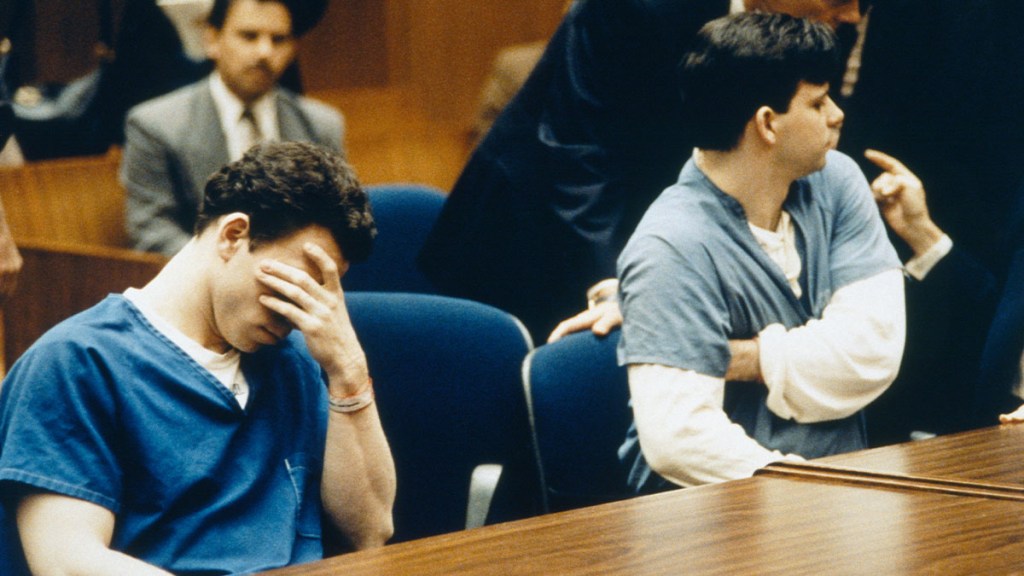New evidence in the Menendez brothers case has the potential for getting them an appeal or a new trial, but a former district attorney says that it’s not that simple. Lyle and Erik Menendez were convicted of first-degree murder for killing their parents, Kitty and Jose, in August 1989 at their Beverly Hills home. They have been in prison since July 1996. But a resentencing could occur if a judge is swayed by the new evidence and chooses to vacate their convictions, possibly setting them free. However, a legal expert says there are several reasons why this might not come to pass.
Why would the Menendez brothers’ new evidence not free them from prison?
Despite the revelation of new evidence in the Menendez brothers’ case, including a letter from Erik Menendez and an affidavit from a past Menudo band member, former Los Angeles D.A. Jackie Lacey says that this might not be enough.
In a 48 Hours interview, Lacey points out several issues with the new evidence that the current D.A. office might consider pointing out in a potential retrial of the case.
The appellate attorney for the brothers, Cliff Gardner, says that a letter written by Erik in December 1988 to his younger cousin Andy Cano shows that he didn’t lie about his father’s alleged abuse. Several lines in the letter reads, “Every night I stay up thinking [Jose] might come in. / He’s crazy. / He’s warned me a hundred times about telling anyone, especially Lyle.” Gardner says that this undermines the state’s case in their second trial during which the prosecution believed that the abuse didn’t happen.
However, Lacey says that the letter might not be authentic, saying that only Erik can point to its authenticity since Cano sadly passed away. She says that this document “could have been written by Erik Menendez shortly after the murder to Cano,” and mentions that Cano never testified about the letter during the first trial for the case. Gardner says that the letter could have been forgotten by both Cano and Erik given that it included other details and it was one of several letters Erik sent to him.
The second piece of evidence is a sworn affidavit filed in 2023 by Roy Rosello, who was part of the Puerto Rican boy band Menudo, that accuses Jose for sexual abuse in the early ’80s when Rosello was still a minor. Jose was an executive of RCA Records at the time. The details of Roy’s account of the incident are further explored in the Peacock documentary “Menendez + Menudo: Boys Betrayed.”
That said, Lacey says that the judge might not believe that Roy’s affidavit would have changed the jury’s verdict of first-degree murder in the second trial. She says that the judge would still have to consider “the brothers’ planning, cover-up, [and] the money that they spent” after their parents’ murder. She does not believe that “at the time they murdered them, that they were in danger at that particular minute of being murdered by those people,” and calls what the brothers did an act of “vigilantism.”
Garnder, on the other hand, says that new evidence of physical and sexual abuse can mitigate a crime. “It is relevant to your state of mind,” he says, “and state of mind is the key in determining whether something is murder or something is manslaughter.” In the brothers’ first trial, which accepted more witness testimony of their father’s alleged abuse, two separate juries were divided, leading to a mistrial.
Toward the effort of setting the brothers free, Gardner filed a habeas petition in May 2023. Mark Geragos, another attorney for the brothers’ case, said in Newsweek that the DA’s office is still “conducting a thorough review [of the case] and has been granted until September to respond to our new evidence.” Lacey believes that if the judge vacates their conviction, the DA’s office would need to “spend a lot of time thinking” about seeking a new trial.









